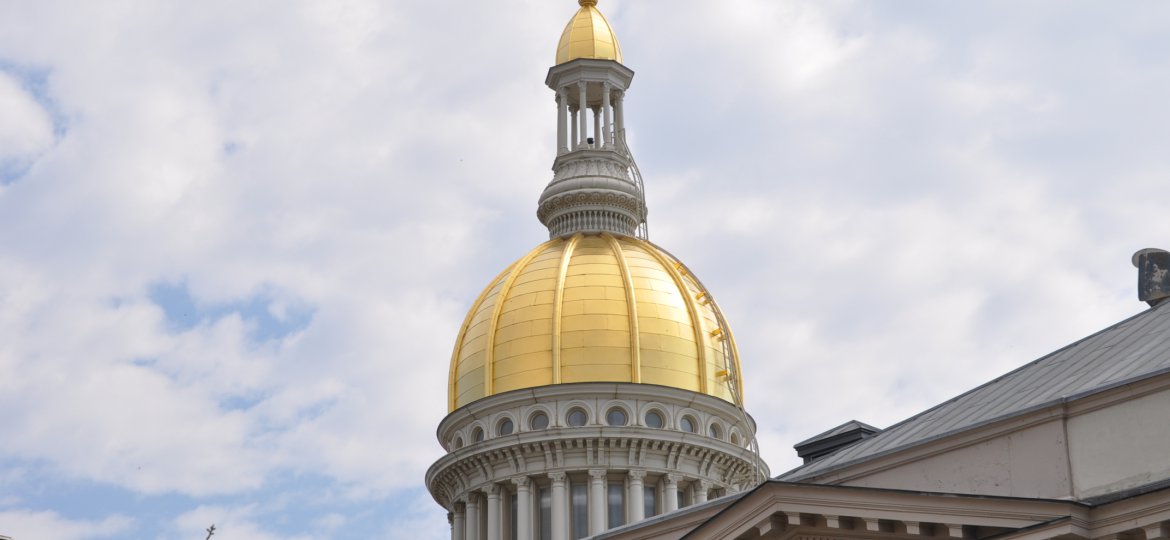
TRENTON – Legislation sponsored by Senators Shirley K. Turner, Nilsa Cruz-Perez, and Jim Beach that will establish innovation zones around New Jersey’s institutions of higher education and research hospitals to stimulate the technology industry clusters cleared the full Senate today.
The bill, a Senate Committee Substitute for S-726 and S-1257, would implement Governor McGreevey’s Executive Order No. 128 of 2004 and require the New Jersey Economic Development Authority to establish three “innovation zones” in Greater Camden, Greater New Brunswick, and Greater Newark. Greater Camden is defined as Camden City, Egg Harbor Township, Galloway Township, Glassboro Borough, Harrison Township, Mantua Township, and Stratford Borough. Among the cities and towns in the Greater New Brunswick zone are Trenton, Ewing, Lawrence and West Windsor Townships. Some of the cities and towns in the Greater Newark area are Newark City, Belleville Township, Clifton City, East Orange City, Hoboken City, Livingston Township, Little Falls Township, Montclair Township, Nutley Township and Orange City.
“These partnerships between the academic communities, hospitals and technology industries will create great benefits for research and development, which, as a result can aid in job creation. Through this effort, we will also help to jump start the economy on the local and state level,” said Senator Turner (D-Hunterdon, Mercer). “In addition to the jobs, another positive is the opportunities that can be created for students, businesses and research scientists. All of which will prove to be beneficial and educational, while also helping to stimulate our state’s economy.”
Under the bill, an innovation zone is defined as a geographic area surrounding a New Jersey research institution that has the potential to attract a collaborative research effort between the academic communities, research hospitals, and New Jersey’s high-technology industry, resulting in business and job growth. The geographic boundaries of the innovation zones and subzones would be recommended by the executive director of the NJEDA and approved by its members.
“This can establish a foundation for success. By creating innovation zones which include our colleges, universities and research hospitals, we can boost research and improve our ability to generate cutting-edge technologies,” said Senator Cruz-Perez (D-Camden, Gloucester). “The surrounding areas of these towns would also see the positive effects of these innovation zones due to their ability to attract businesses to the community, create jobs, and spark further innovation in the science and technological fields.”
“It is important for New Jersey to take steps to ensure we are keeping up with the global marketplace, especially in the areas of science and technology,” said Senator Beach (D-Burlington, Camden). “We have so many excellent colleges and universities in the state that can really find great value in these programs. The creation of innovation zones under this bill will improve our ability to attract high-tech businesses and give students and researchers the opportunity to work collaboratively with those companies. This kind of educational training will help our students, and ultimately our state, meet the demands of a 21st Century economy.”
Under the bill, the NJEDA would be required to modify its existing business assistance programs, with the approval of the State Treasurer, to provide incentives to hi-tech businesses that locate in an innovation zone surrounding a research institution.
The Authority would also be required, in partnership with Secretary of Higher Education, to modify programs to promote and support collaboration between hi-tech businesses and research institutions in the innovation zones, to increase federal funding to research institutions in areas of strategic importance to New Jersey’s hi-tech industry, to promote the transfer of technology and commercialization of new ideas in the zones, and to further develop support for hi-tech companies in the innovation zones including, business incubation and grant writing assistance services.
The bill would require NJEDA to work cooperatively with other State departments, agencies, boards, and commissions to explore and implement opportunities to direct resources to those areas within the innovation zones that surround a research institution, and could provide technology, financial, and workforce development opportunities, infrastructure, and housing elsewhere within innovation zones.
The bill would require the NJEDA to also establish an advisory committee for each innovation zone, with a membership consisting of local technology business leaders and representatives from the research community. The advisory committees would meet quarterly to update the NJEDA on the functioning of the innovation zones and the needs of the local technology industry.
The bill cleared the Senate 36-0 and cleared the Assembly 65-3-1 in late December. It now heads to the governor.




